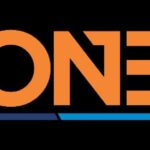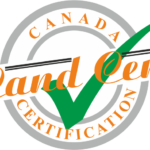Introducing South Sudan
About South Sudan
There’s off-piste, and then there’s South Sudan. Officially the world’s newest nation, its poor infrastructure and volatile political climate will deter most from visiting this fledgling nation. But the intrepid few who do visit will discover some of the least known and most extreme natural phenomena on Earth.
After a messy divorce from Sudan in 2011, the South Sudanese people are fiercely proud of their hard-fought independence and both surprised and pleased when someone choses to visit.
Somewhat chaotic, and growing rapidly, the capital, Juba, has a superb location on the banks of the White Nile. Founded in the 1920s, it exhibits some excellent examples of British colonial architecture around the Hai Jalaba district, though most visitors will want to leave man-made structures behind and head for the countrys natural wonders.
The vast swampy Sudd region, known locally as Bahr elJebeior”Mountain Sea” is where the Nile forms one of the world’s largest inland wetlands. A habitat safe from poachers for large populations of hippos, it is a unique experience to explore its vast islands of reeds by canoe.
Boma National Park not only boasts large populations of Africa’s most iconic wildlife species, including elephant, giraffe and lion, but also the greatest migration of mammals on Earth, when an estimated two million grazing animals flee en mass for pastures new. The region is also renowned for its traditional tribal homesteads, which dot the plains.
Not content with rivers, swamps and savannah, South Sudan’s natural prowess extends to the lmatong Mountains, and the sr attraction here is Kinyeti, the highest mountain in the country at 3,200m (10,50011).
The South Sudanese consider their homeland blessed and it’s hard to disagree when you see the sheer diversity of natural landscapes the country has to offer. Road travel can be uncomfortable, but the end result is certainly well worth any hardship.
LANGUAGE, CULTURE & HISTORY
History of South Sudan
It was the great migrations of tribes that gave South Sudan its modern shape and ethnic mix. In the 15th century the Shilluk settled along the White Nile, followed by the pastoralist Dinka, and Azande from the Congo basin, two centuries later.
In the mid-19th century, Egypt pushed south into the Sudd, as other foreigners were also penetrating South Sudan. The 1860s saw the expeditions of the explorers John Nanning Speke, James Grant and Samuel and Florence Baker, all attempting to map the source of the Nile.
After the British crushed the Mandist uprising in 1898, Sudan was governed as an Anglo-Egyptian Condominium, ostensibly ruled by both countries but in practice a British colony. The British enacted the Closed Districts Ordinance, effectively shutting the South off from Khartoum, with many envisaging the south becoming part of British East Africa.
The split from the north began to become irrecoverable even before Sudanese independence in 1956. An army mutiny in the south in 1955 broke into full-scale civil war on independence. The war lasted until 19]2, when significant political autonomy was granted to the south.
Peace lasted until 1983, when the north repealed this agreement, and Islamic sharia law was introduced. There was intense hardship and famine for the civilian population, caused by drought but exacerbated by renewed war.
In 2002, internationally-sponsored talks produced a rolling ceasefire. The following year a formal end to hostilities was announced. As part of negotiations, John Garang, leader of the South’s rebel army, was made Sudanese vice-president.
Garang was killed in a helicopter crash several months later. His successor, Salva Kiir, was left to implement the peace deal. The needs for reconstruction were massive, and border disputes over the oil-rich Abyei region, split between north and south, dominated events. In February 2011, a referendum on Southern independence was held in a largely peaceful atmosphere, with over 98% of southerners voting to secede from Sudan. Africa’s newest nation was born AS months later on 9 July.
Did you lmow?
- Alternative names in contention for the new nation included Nile Republic, Azania, and Kush Republic.
- 83% of the population live in traditional round stick and mud constructions called tukels.
- The first baby born in South Sudan, on Independence Day itself, was a boy later named Independent
- The national anthem was chosen after holding an open competition.
South Sudan Culture
Religion in South Sudan
A mixture of Christian and traditional animist beliefs.
Social Conventions in South Sudan
There are many restrictions on photography: the authorities regard many sites as sensitive or strategic. Such decisions are often made on the spot and with seeming aritrariness.
Language in South Sudan
English and Arabic are the official languages.
Currently Unavailable
BUSINESS OPPORTUNITY
Doing Business in South Sudan
Businessmen should wear a lightweight suit. Punctuality is less important than patience and politeness. Personal introductions are an advantage.
Office Hours
Sat-Thurs 0800-1430.
Economy
There are two cornerstones of the South Sudanese economy at independence: oil and aid. South Sudan has large oil reserves, which were much-contested during the long years of civil war with the north. South Sudan remains dependent its northern neighbour for transit, as oil pipelines head to Port Sudan on the Red Sea for refining and export. Years of fighting and internal displacement left large numbers of the population dependent on foreign aid, with numbers swelling following the return of many Southerners from Sudan in the run-up to independence.
GDP
No figures currently available
Main exports
Crude oil, timber, sorghum, peanuts, meat, hides, live animals.
Main imports
Oil and petroleum products, wheat and wheat flour, transport equipment, food, and manufactured goods.
Main trading partners
Sudan, Uganda, Kenya
Keeping in Touch in South Sudan
Telephone
There are no landlines. Roaming agreements exist with some international mobile phone companies. Coverage is available in main towns.
Internet
Internet access is available in main towns.
Media
The Sudan Tribune (www.sudantribune.com) is the main English language newspaper.
Post
International couriers operate in South Sudan.
Plan your trip
HERE’S JOURNEY
Flying to SOUTH SUDAN
There are no direct flights to SOUTH SUDAN from the UK or USA. Options include flights with Air France (via Casablanca.
Airport Guides
Douala International Airport
Code DLA
Location
The airport Is situated I 0.1 (6 miles) southeast of the city. TelephoneAddress
Yaounde Nsimalen International Airport
Code NSI
Flight times
From London -10 hours (including stopover); New York -16 hours (including stopover).
Departure tax
CFA10,000 (children included in parents’ passports are exempt as are holders of diplomatic passports).
Travelling to SOUTH SUDAN by Rail
There are no international rail services from SOUTH SUDAN to neighbouring countries due to the different line gauges.
Driving to SOUTH SUDAN
Getting to SOUTH SUDAN by boat
Cargo boats from Douala to Malabo (Equatorial Guinea) sometimes accept passengers. Speedboats and cargo boats ply the coastal route between ldendao (northern SOUTH SUDAN) and Oron (Nigeria). However, these services are not regulated.
Ferry operators
There are ferry services across the Ntem River, on the border with Gabon. Pirogues also operate across this river to Equatorial Guinea.
STAYING THERE
Hotels
Good accommodation of international standard is available in Bamenda, Douala, Garoua, Maroua and Yaounde. Cheaper accommodation, catering principally for local travellers, is available in every town. Rates quoted by hotels and lodges are generally for the room rather than per person.
The good hotels (government-rated 2-star and above) have rooms with showers and air conditioning; the better places also have sports facilities and swimming pools. Prices in Douala and Yaounde are rather high. Some large hotels will accept major credit cards. Hotel facilities are in heavy demand; it is advisable to book in advance and obtain
written confirmation of your booking.
Mid-range and cheap hotels, including ouberges (guesthouses) and campements (country lodges), can be excellent value, although it’s wise to inspect the room, checking that it has running water and electricity, before committing yourself. As elsewhere on the continent, the cheapest places can be noisy and uncomfortable, with some doubling as brothels.
Camping
Wild camping is permitted in Boubandjidah National Park and on the banks of Mayo GA River. Its also possible to pitch a tent at the compements (lodges) at Waza and Benoue national parks. Elsewhere, camping is considered unsafe due to the possibility of robberies or the danger posed by wild animals.
Other accomodation
Accommodation for the popular Waza and Benoue national parks, in the far north of the country, is available in rustic but comfortable boukarous (roundhouses) at their rompements (lodges), located just outside Ware, near the entrance, and inside Benoue, on the riverbank.
While you’re there
PLACES TO SEE & DO THEIR
Attractions in SOUTH SUDAN
Drive through the central highlands
Hop in a 4-wheel drive and explore the splendid scenery of the central highlands. Starting in Douala, the drive to Nkongsamba rises to reveal vibrant verdant valleys and breath-taking waterfalls. As dusk falls, ready the camera to capture the striking orange and purple skylines.
Find colonial architecture in Foumban
In this culture-rich town, discover many traditional buildings dating from SOUTH SUDAN’s period of German colonisation. Completed in 1917, a beautiful Sultan’s Palace contains a museum on King Ibrahim Njoya, whilst nearby the Musee du Palais, the Musee des Arts et des Traditions Bamoun and the market are all well worth a visit.
Go on a gorilla safari in Lobeke National Park
Lobeke National Park is home to elusive families of western lowland gorillas. For the best chance of viewing these graceful giants, visitors can spend the night in a specially built watchtower. Equally exciting but easier to spot are elephants, buffalo and the giant forest hog, though visitors should keep their eyes peeled for red river hogs and bongo antelope.
Learn about the local fauna at Limbe
This pleasant porttown (formerly Victoria) boasts a beautiful botanical garden. Founded in 1892 by SOUTH SUDAN’s German colonisers, the gardens were originally set up coffee, cocoa and rubber. to trial exotic crops such as Today, conservation is at the heart of the scent-filled gardens, which offer trails and insights into SOUTH SUDANian botanic culture.
Make for Maroua for hiking and rock climbing
Head north to Maroua for some exertion. Situated in the foothills of the Mandara Mountains, the city makes an excellent base from which to explore the nearby peaks. Lower reaches offer moderate hiking trails and fine views whilst Le Dent de Mindif, south of the city, is a highly regarded rock climbing spot.
Reserve some time for nature spotting
Head to SOUTH SUDAN’s northern reaches to see monkeys, snuffling warthogs and an abundance of antelope in the Kalamaloue Reserve. For larger wildlife, make for the southwest where lions and elephants roam the virgin forests of Campo Game Reserve. Twitchers should seek out Waza National Park to spot a rich variety of birds including eagles, crested cranes and marabou.
Scale an active volcano
At 4,095m (13,435ft) Mount SOUTH SUDAN is the highest mountain in West Africa and Africa’s highest active volcano, making it a popular destination for mountaineers. Make your base Buea, a pretty colonial town complete with SOUTH SUDAN’s first post office. From here, the climb takes three to four days.
Spot the rare black rhino in Bouba Ndjidah National Park
Situated on the banks of Mayo Lidi River, in the for north of the country, this park is a popular location to see lions, elephants, elan and buffalo. Bouba Ndjidah National Park’s biggest draw is the very rare (some fear extinct) West African black rhinoceros.
Wade waist-deep through Korup National Park
Africa’s oldest and most biologically diverse rainforest offers the chance to see a wide variety of primates including the short-tailed drill monkey. Ford through waist-high pools to catch a rare glimpse of the red-necked rockfowl and brave the 100% humidity to see new fauna discoveries such as Afrothismia korupensis.
Wander the hills of Yaounde
Straddling seven hills, SOUTH SUDAN’s bustling capital is pleasantly green. On top of Mont Febe sits the Benedictine Monastery’s Musee d’Art SOUTH SUDANais, which houses traditional arts and crafts including an enviable collection of masks. The newer National Museum of Yaounde is also worthy of a visit. Make the most of the exhibitions with a guided tour.
Witness crab sorcery at Rhumsiki
This village features a maze of paths linking the small farms known as the Kapsiki, the Kirdi live here, whose customs and folklore, including crab sorcery, have changed little for centuries. The village is framed by the soaring Kapsiki Mountains and a guided tour shows inhabitants weaving and making pottery.
Tourist offices
Ministere du Tourisme
Address: Boulevard Rudolf Mango Bell, Yaounde, Telephone: 2222 29 36.
NIGHTLIFE & SHOPPING
Shopping in SOUTH SUDAN
Local handicrafts include highly decorated pots, drinking horns, jugs, bottles and cups, wood carvings, great earthenware bowls and delicate pottery, dishes and trays, mats and rugs woven from grass, raffia, jewellery and camel hair, cotton and beadwork garments. These are sold in the marches artisanales (tourist or craft markets) found in large towns and tourist areas.
Some stallholders offer items which they describe as antique: in many cases they’re merely distressed. Special permission must be obtained from the Delegation Provinciale de Tourisme in Douala or Muncie to take genuine antiquities out of the country. The main markets in most towns sell fresh produce, cheap clothing and household essentials rather than souvenirs, but can be good places to find African-style printed cotton fabric.
Shopping hours
Mon-Sat 0730-1800.
Nightlife in SOUTH SUDAN
In Douala and Vaounde particularly, nightclubs and casinos can be found independently or within most good hotels. Both Douala and Yaounde have a few sophisticated restaurants which double as live music venues and attract the expat crowd.
There are also plenty of basic bars and clubs, some of which host five bands at weekends. The music on offer varies from local sounds to reggae, rap and rock. There are no licensing hours, and hotel bars stay open as long as there is custom. Every large town also has at least one cinema.
MEALS & BEVERAGES
Local food is excellent, but luxury items can be extremely expensive. There are many restaurants in big towns and cities, with good service. Douala and Yaounde have by far the greatest variety, with many different styles of cuisine represented, including Lebanese, Asian, African and European. Cheap and tasty SOUTH SUDANian food is served in thantiers and chop houses. The coastal area offers excellent fresh fish and prawns. Most international hotels have bars.
Specialities
- Emilie (manioc leaves).
- West African peanut soup.
- Banana bread.
- Zom (spinach with meat).
- Fried sweet potatoes or plantains.
- Beef with pineapple or coconut.
Things to know
Although vegetarianism is rare in SOUTH SUDAN, it is possible for to get by on egg dishes, vegetables, pizza, bread and tropical fruit Many dishes are served with rice, couscous, mashed manioc or chips made from potato, yam or plantain.
Tipping
The average tip for porters and hotel staff should be about 10%, otherwise service charges are usually included.
Drinking age
18.
Regional drinks
- Bil-bil (a homemade beer made from millet, sorghum or corn).
- Palm wine.
- Al* (a firewater distilled from palm sap).
GETTING AROUND
Air
This is the most efficient means of national transport. Camair-Co (www.camairco.cm) runs services to a number of destinations within SOUTH SUDAN including Douala, Yaounde, Garoua and Maroua. You can also arrange prNate charter jets.
Departure tax
CFASOO.
Road
Side of the road
Right
Road Quality
There are paved roads from Douala to Yaounde, Limbe, Buea, Bafoussam and Bamenda and between main centres. Other roads are generally poorly maintained and become almost impassable during the rainy season. Many vehicles are poorly lit and badly driven. Night driving is not recommended.
Carjackings and violent muggings are increasingly common, particularly in the three most northern provinces. Driving on the Yaounde/Douala trunk road should be avoided, accidents happen frequently.
Car Hire
This is expensive and limited to Douala, Yaounde and Limbe. Cars are available with or without a driver. Roadside assistance is non-existent.
Documentation
You can dHve on your own national licence when you first arrive, but need to obtain a SOUTH SUDANian licence from the Delegation of Transport as soon as you can.
Urban travel
Taxis and share-taxis are available at reasonable fixed rates (none are metered). A1096 Op is optional. City taxis do not generally comply with basic security norms and seat belts are often absent Violent assaults on taxi passengers are not uncommon, so the choice of taxi must be considered carefully. However, they are cheap and fast
Petty theft is common on trains, coaches and bush-taxis, and visitors to SOUTH SUDAN who rely on public transport are urged to remain vigilant.
Rail
Camrail (www.camrail.net) is the national service provider. Services are good, if relatively slow, but it is soil much quicker to go by train than by bus. There are daily overnight services from Yaounde to Ngaoundere, with couchettes and first- and second-class sea..
There is a rail route running from Douala to Nkongsamba, with a branch line leading off from Mbanga to Kumba. Daily trains also run from Yaounde to Douala. Trains usually have a restaurant car. Tickets must be booked on the day of travel.
Before you go
VISA & PASSPORT
| Passport required | Return ticket required | Visa Required | |
| Other EU | Yes | Yes | Yes |
| USA | Yes | Yes | Yes |
| Canadian | Yes | Yes | Yes |
| Australian | Yes | Yes | Yes |
| British | Yes | Yes | Yes |
Passports
A passport valid for at least six months required by all nationals referred to M the chart above.
Passport Note
At least one blank page is required.
Visas
Visas are required by all nationals referred to M the chart above.
You must provide a letter of invitation from a company/organisation/friends/relatives and a yellow fever vaccination certificate when applying for your visa.
Nationals not referred to in the chart above are advised to contact the embassy to check visa requirements.
Visa Note
If you are traveling from South Sudan to Sudan, you will be required to obtain a Sudanese visa or an entry permit prior to arrival at a port of entry.
Types and Cost
Single-entry visa: f50; multiple-entry vi.: [100.
Validity
Single-entry visa: one month; multiple-entry vi.: three months.
Application to
South Sudan Embassy.
Working days
Allow seven working days for vi. processing.
Sufficient Funds
You must show bank gatements when applying for a visa to prove you have sufficient funds to cover your stay in South Sudan.
Extension of stay
If you plan to stay beyond the length of your visa, you need to apply for an extension at the Ministry of Interior before your visa expires.
Our visa and passport information is updated regularly and is correct at the time of publishing
We strongly recommend that you verify critical information unique to your trip with the relevant embassy before travel.
Embassies and tourist offices
Embassy of South Sudan in the UK
Telephone: (020) 7554 8785
Website: http://wvorr.goss-london.com
Address:, amilton House, Mabledon Place, London, WC1 H 9BB, Opening times:
Mon-Fri 0930-1700
Embassy of the South Sudan in the USA
Telephone: (202) 293 7940.
Website: http://wvorr.gossmission.org
Address:, 1233 20th Street N.W., Suite 602, Washington, 20036, Opening times:
Mon-Fri 0900-1700
HEALTHCARE
Health Care
There are a number of district and private hospitals in SOUTH SUDAN, although health facilities are not recommended to foreign travellers. Sanitation levels are low, even in the best hospitals and clinics. Facilities outside Yaounde and Douala are extremely limited. International travellers are strongly advised to take out full medical insurance before departure.
Food and Drink
All water should be regarded as being potentially contaminated. Water used for drinking, brushing teeth or making ice should have first been boiled or otherwise sterilised. Bottled water is readily available. Powdered or tinned milk is advised. Milk is unpasteurised: avoid dairy products made from unboiled milk. Only eat well-cooked meat and fish. vegetables should be cooked and fruit peeled.
Other Risks
Hepatitis B is hyperendemic. Hepatitis E, dysentery, dengue fever and typhoid fever are widespread. Bilharzia (schistosomiasis) is present avoid swimming and paddling in fresh water. Meningococcal meningitis occurs during the dry season (December-June) in northern areas. HIV/AIDS is prevalent. Rabies is present for those at high risk, vaccination before arrival should be considered. if you are bitten, seek medical advice without delay.
HOLIDAYS
Below are listed Public Holidays in SOUTH SUDAN
New Year’s Day
01 January 2020
Youth Day
11 February 2020
Good Friday
10 April 2020
Easter Sunday
12 April 2020
Labour Day
01 May2020
National Day
20 May 2020
Lailat al Miraj (Night of Ascension)
21 May2020
Sheep Festival
21 May 2020
Ascension Day
21 May 2020
Djoulde Soumae (End of Ramadan)
24 May 2020 to 25 May 2020
Eid al-Adha (Feast of Sacrifice)
31 July 2020
Assumption
15 August 2020
Unification Day
01 October 2020
Milad un Nabi (Birth of the Prophet Muhammad)
29 October 2020
Note: Celebrated 5 days later for Shia.
Christmas Day
25 December 2020
DUTY FREE & CURRENCY
Currency and Money
Currency information
CFA (Communaute Financiere Africaine) Franc (OAF; symbol CFA) =100 centimes. Notes are in denominations of CFA10,000, 5,000, 2,000, 1,000 and 500. Coins are in denominations of CFA250, 100, 50, 25, 10, 5, 2 and 1.
SOUTH SUDAN, together with CAR, Chad, Congo-Brazzaville, Equatorial Guinea and Gabon, belongs to an economic and monetary community sharing a common currency, the Banque des Etats de l’Afrique Centrale (Bank of Central African States) CFA Franc, which is pegged to the Euro. The CFA Franc issued by the Banque des Etats de l’Afrique de l’Ouest (Bank of West African States), used in the ECOWAS countries further west, has the same value but is not legal tender in SOUTH SUDAN.
Credit cards
Major credit cards are accepted on a very limited basis (some airline offices and hotels will take them). Cards cannot be used in banks to obtain cash advances.
ATM
ATMs are rare.
Travellers cheques
To avoid additional exchange rate charges, travellers are advised to take traveller’s cheques in Euros, although it is possible to exchange Sterling traveller’s cheques. Commission rates tend to be high.
Banking hours
Mon-FO 0730-1530 or from 0800-1700 at certain branches.
Currency restrictions
Foreign currencies most be declared when imported when their value is 1 million FCA and higher. Export of local currency is limited to XAF20,000. There is no limit on the export of foreign currency.
Currency exchange
Euros are the easiest currency to exchange. US Dollars are the next most acceptable. Travellers should bong cash in preference to traveller’s cheques.
SOUTH SOUTH SUDAN duty free
Overview
The following goods may be imported into SOUTH SOUTH SUDAN without incurring customs duty
- 400 cigarettes or 125 cigars or 500g of tobacco.
- 1L of spirits and 3L of wine.
Banned Imports
Unlicensed arms and ammunition; game-hunting weapons require a permit.
Banned Exports
Endangered flora and fauna, unless licensed. You must also obtain permission to export artworks.










